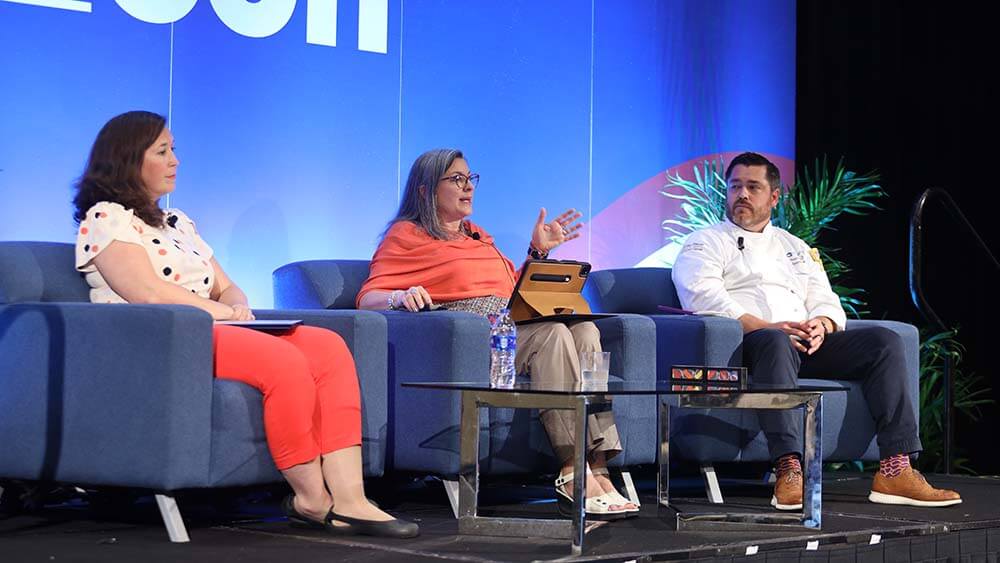
Moderator Aurora Dawn Benton, with panelists Brandon Felder and Heather Seasholtz, offer advice on making social and environmental impact with event F&B. (Jacob Slaton Photography)
Aurora Dawn Benton, founder of sustainability and social impact training company Astrapto, opened Monday’s EduCon session “Quick F&B Wins for Improved Social and Environmental Impact,” by telling the large audience that she struggled with the title of the session, because her philosophy focuses on culture change.
“It’s all about long-term changes,” she said. When she spoke with the two panelists while preparing the session — Sodexo Live! executive chef Brandon Felder and Heather Seasholtz, vice president of conference operations at Conference Managers — the first thing they also mentioned was culture change.
“The first thing you have to understand is that quick wins do not mean shortcuts,” Benton said. Improving the social and environmental impact of your events not only requires a change in culture but planning and persistence.
With that in mind, Benton and the panelists discussed 10 quick wins for food and beverage impact during the session.
- Showcase what you are doing. Don’t assume your attendees know your impact.
Benton shared that the Opening Reception at the Hyatt Regency was an “excellent example” of this win. Using cards, the Hyatt showcased menu items that came from local businesses, female- or minority-owned businesses, or were made with sustainable seafood. Sharing that kind of information with attendees helps reinforce the importance of an event’s impact.
- Always include specific sustainability questions in RFPs, site visits, and follow up.
- Trust your (chef’s/supplier’s) intuition (e.g., people don’t come to New Orleans to eat bagels).
- Always go back to the meeting’s strategic purpose (the “why”).
- Extend food by cutting into smaller portions. And emphasize quality over quantity: smaller portions of better (local/sustainable) ingredients.
- Start measuring one thing today! Then add another next week. One step at a time.
- Learn the Bill Emerson Good Samaritan law! No excuses to not donate your unused/unopened leftovers.
- Avoid pre-set, pre-for, pre-slice as much as possible. (This does not mean don’t prepare the food; it means send it to families in need instead of composting or putting in landfill.)
- Use data to make decisions. Ask questions in registration forms and apps. Rethink the demographics and trends to make better choices.
10. Watch for common waste categories: condiments, salad dressings, toppings.
Curt Wagner is digital editor at Convene.
